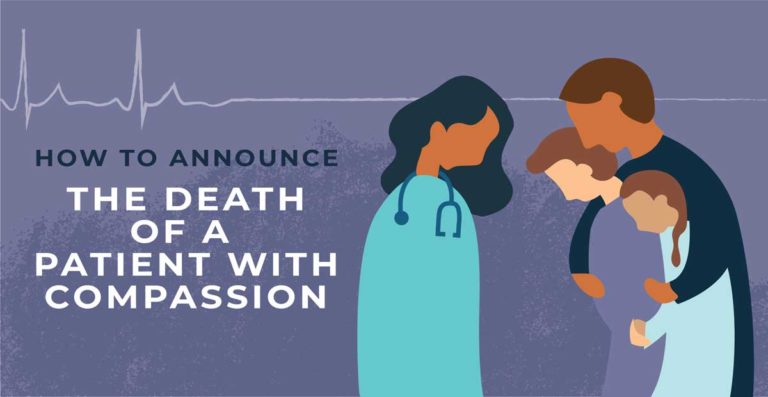When you’re a nurse, death is just another part of the job. That doesn’t mean nurses are numb to pain every time a patient dies on their watch, but every nurse needs to learn how to cope with death. That includes having the ability to speak to the deceased’s relatives and next of kin to let them know that their loved one has died. This can be one of the most stressful aspects of being a healthcare provider, but it’s also one of the most important. Relatives of a deceased patient will look to the nurse or doctor for strength, resolve, and emotional support.
Use these tips to perfect your bedside manner and learn how to handle patient deaths with grace and ease.
Finding a Quiet Place
You never know how a person will react when they hear the news of a loved one passing away, so it’s important to give the patient’s loved ones as much privacy as possible. If you can, try to find an unused room nearby, so you can talk to the family without being distracted or interrupted by another staff member. Once the news has been delivered, let the relatives spend some time in the space alone, so they can grieve in private.
Avoid Misleading Euphemisms
You might be tempted to say that someone has passed away, but euphemisms like these can get you into trouble. It’s best to be direct with the patient’s loved ones and treat them like adults. They’re in the hospital and, somewhere deep inside, they know there’s a chance that their loved one isn’t coming back. If you say that someone has passed away, the relatives might get angry with you and demand a straight answer.
Using Proper Body Language
Body language is key when doling out bad news at the hospital. It’s usually best to sit down with the patient and look them in the eye, maintaining as much eye contact as possible. If the person is standing when they hear the news, they may faint or become violent. Keep your arms at your side instead of fiddling with something in your pockets or crossing them over your chest.
Build on the Relative’s Existing Knowledge (If Any)
Every patient death is a different situation. If the patient died unexpectedly, the family will want some more information, and having a doctor at your side might come in handy.
But if the patient was terminally ill for a long period of time, you should be able to use the family’s existing knowledge of the situation. Try to gauge how much they know about the patient’s condition before they died. You can leave out some more technical details and speak in a way that everyone can understand. You can always fill in the more specific details if the family has any questions.
Telling someone their loved one has died is never easy. Trust your instincts and ask your colleagues for advice. You will have perfect bedside manner before you know it.
Subscribe to the Nursegrid blog for more nursing tips and advice.
